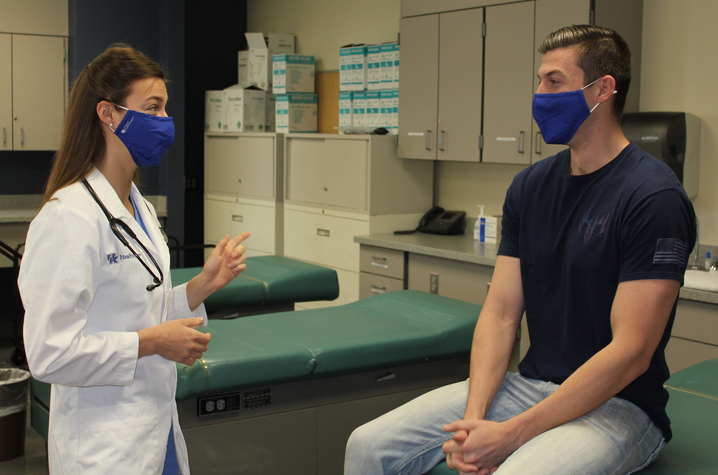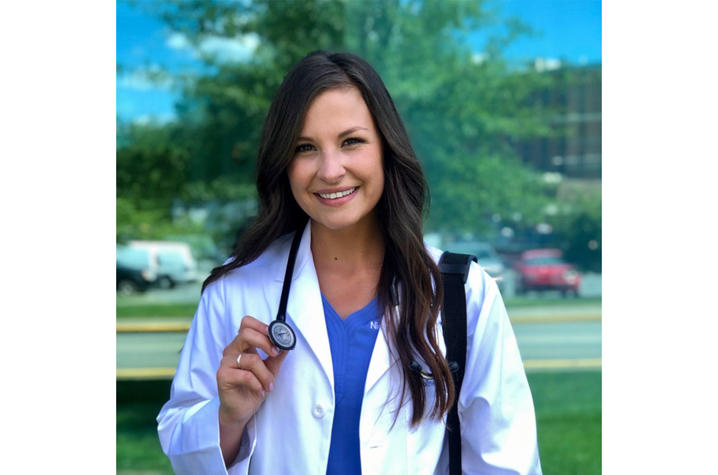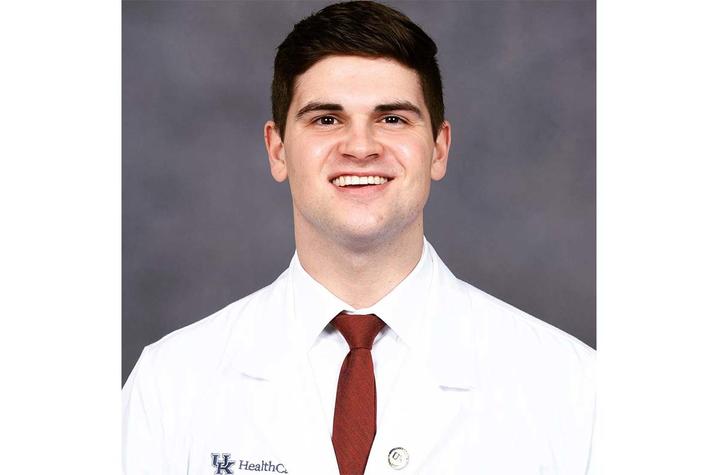Experiential Learning Helps Physician Assistant Grads Prepare to Enter the ‘Real World’
LEXINGTON, Ky. (June 16, 2021) — Carter Hahn is from Wilmore, Kentucky — a town located in Jessamine County just outside of Lexington, with a population of under 7,000 people.
He has a goal: to impact the health of people in this region in a positive way. And that goal led him to the Physician Assistant (PA) Studies program at the University of Kentucky.
“I love this area,” the third-year PA student said. “I really wanted to help impact the health of the Commonwealth of Kentucky, so I figured there was no better place to do that than at UK.”
Saturday, Hahn and the rest of his class will commemorate the end of their UK studies at the UK PA Class of 2021 Celebration, from 1-3 p.m., at the Gatton Student Center, 212ABC, Grand Ballroom, on the Avenue of Champions. (Watch the livestream here.)
These students feel especially prepared to enter the real world. Why? Because they’ve received the perfect blend of textbook knowledge and real-world tutelage. One example is Assistant Professor of Physician Assistant Studies Cheryl Vanderford, who uses a simulation experience in her class, where nearly 60 volunteers — some of them students from other disciplines — act out ailments for the PA students to deduce.
“My teaching philosophy involves creating spaces for students to practice ‘real-world’ scenarios in a safe, simulated environment so they feel confident and prepared as they enter practice,” Vanderford said. “I truly want to foster a growth mindset and let students know it’s okay to make mistakes — that’s how we learn! Simulation is a safe place!”
Simulations assess student capability to apply knowledge gained and engages students in a higher-level mastery of skill. This year’s experience was unique because the volunteers came from several different departments within the UK College of Health Sciences, including Departments of Athletic Training and Communication Sciences and Disorders, as well as outside, like the UK Apollo Society and Murray State University.
Brooke Woosley is a 22-year-old human health sciences and public health major on the pre-PA track.
“As an undergraduate pre-PA student, I wanted to help some of the graduate students in CHS,” she said. “I have had tremendous support from our college through my undergraduate studies and I knew this was one way to give back to the college. I also really enjoy learning more about the roles and responsibilities of the PA students and some of the activities they participate in.”
Dylan Hardesty is a 19-year-old kinesiology major and a student athletic trainer for UK’s women’s basketball team.
“I decided to portray an athlete with pain and swelling in the knee to convey I had a meniscus injury,” he said. “I am passionate about sports medicine, and I currently work as a student athletic trainer for the Kentucky women's basketball team, so it is an injury that I am familiar with. I thought it would be interesting to see the thought process of the PA student when presented with a case of that nature.”
Abby Ayers, a 20-year-old human health sciences major on the pre-PA track, knows about injuries — she tore an ACL and had meniscus tears in both knees. It was easy for her to participate in the simulation.
“I see it as a way to help my future colleagues in the PA profession,” she said. “It also gives me a look into what PA school will be like for me too. I hope my real-life stories and symptoms helped the PA student learn. The student was very nice and professional, and she did a great job!”
It made a huge difference to Nicoline Joenborg, a third-year PA student from Rockcastle County, Kentucky.
“It was extremely helpful to get to practice our skills in a safe environment with students who were well-versed in acting,” she said. “Upon completion of the simulated patient interview, we were given constructive criticism from both our professor and the actor. This gave us a chance to improve our skills and prepare us for the start of clinical rotations and real patients.”
It all adds up to giving the students a feel for what their real jobs will be like.
For Hahn, who has accepted a job as a hospitalist PA in Louisville, these classes did just that.
“I got a taste of what it would be like to actually take care of patients in the real world,” he said. “You can only learn so much from books and lectures, but actually getting to interact with standardized patients is invaluable. I learned so much from these simulations and I felt very prepared for my clinical rotations because I had already done it before.”
As the state’s flagship, land-grant institution, the University of Kentucky exists to advance the Commonwealth. We do that by preparing the next generation of leaders — placing students at the heart of everything we do — and transforming the lives of Kentuckians through education, research and creative work, service and health care. We pride ourselves on being a catalyst for breakthroughs and a force for healing, a place where ingenuity unfolds. It's all made possible by our people — visionaries, disruptors and pioneers — who make up 200 academic programs, a $476.5 million research and development enterprise and a world-class medical center, all on one campus.







